Posted on 7/31/2023

In the pursuit of sustainable mobility, automotive manufacturers have embraced hybrid and plug-in hybrid technologies to offer environmentally friendly alternatives to traditional internal combustion engines. BMW, a leading name in the automotive industry, has been at the forefront of this eco-conscious movement, introducing a lineup of hybrid and plug-in hybrid vehicles. If you are wondering about the reliability and performance of BMW in this realm, you are in the right place! Here is our opinion and a few facts on the topic: Electrified Performance One of the most significant advantages of BMW hybrids and plug-in hybrids is their electrified performance. Combining internal combustion engines with electric motors, these vehicles offer seamless power delivery, enhanced acceleration, and reduced fuel consumption. The electric motor complements the combustion engine, providing instant torque and delivering an exhilarating driving experience. Fuel Effic ... read more
Posted on 6/29/2023
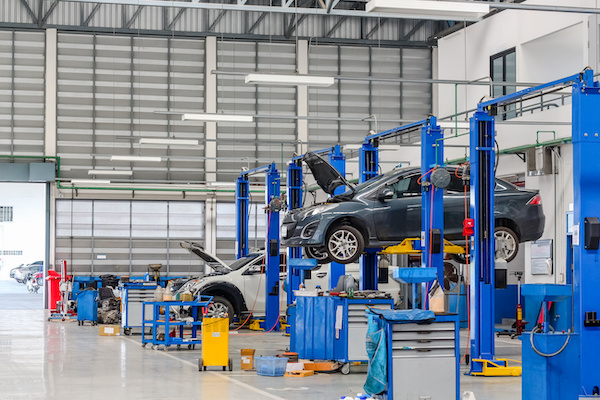
When it comes to vehicle repairs and maintenance, having the right tools is crucial. While many car owners have a set of tools at home, professional repair shops are equipped with specialized equipment designed to handle a wide range of automotive tasks. Let's explore the differences between tools and equipment commonly found at home and those found in professional repair shops, highlighting the advantages of relying on the expertise and resources of professional mechanics. Here are the main advantages a professional repair shop has: Specialized tools Advanced diagnostic equipment Lifts and hoists Specialized machinery Access to manufacturer resources Professional repair shops invest in a wide array of specialized tools that are specifically designed for various automotive tasks. These tools include diagnostic scanners, air tools, hydraulic lifts, torque wrenches, and precision measurement instruments. How can these tools help ... read more
Posted on 5/29/2023

The summer season is upon us, and that means it's time for exciting road trips and memorable experiences. Whether you're exploring scenic routes, visiting family and friends, or venturing solo on a long-awaited vacation, the last thing you want is car sickness to dampen your trip. The queasy feeling, dizziness, and discomfort associated with motion sickness can quickly turn a fun-filled ride into an unpleasant experience. But fear not! Our team is here to share some valuable tips to help you avoid car sickness and make your road trips more doable. Tip #1: Choose the Right Seat Selecting the appropriate seat in the car can make a significant difference in preventing car sickness. If you're prone to motion sickness, opt for the front passenger seat. Looking out the windshield offers you a clear view and can help your brain better process the motion and reduce the chances of feeling nauseous. Tip #2: Avoid Excessive Screen Time or Reading These activities can increase the ... read more
Posted on 4/30/2023
.jpeg)
Brake rotors are a critical component of your vehicle's braking system. They play a vital role in ensuring the safety of your ride by providing the necessary stopping power. However, over time, brake rotors can become warped, resulting in a compromised braking system. Causes of Brake Rotor Warping And What You Can Do To Prevent It Excessive Heat One of the primary causes of brake rotor warping is excessive heat. When you press on the brake pedal, the brake pads and rotors create friction that slows down your vehicle. This friction generates heat that can cause the brake rotors to warp. Repeated and prolonged braking, such as when driving downhill, can lead to excessive heat build-up and rotor warping. Additionally, using low-quality brake pads or mismatched brake components can also result in excess heat and rotor warping. Moisture and Corrosion Another cause of brake rotor warping is moisture and corrosion. When your vehicle is exposed to moisture, such as during heavy rain o ... read more
Posted on 3/24/2023
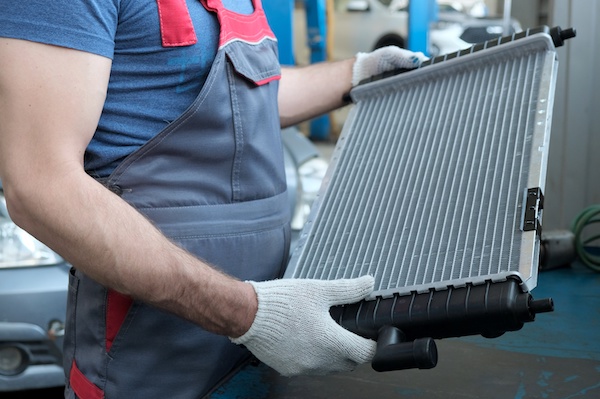
Most people have never heard of the radiator in their vehicle's cooling system before, let alone its crucial role in keeping your engine cool and preventing it from overheating. Fortunately, Ming's Auto Repair is here to explain what a radiator is and exactly what it does. What Is a Radiator? A radiator is a heat exchanger located at the front of your car's engine compartment. It is typically made of aluminum and is designed to transfer heat from the engine coolant to the air that flows through it. The radiator is connected to the engine through a series of hoses. What Does a Radiator Do? The radiator's primary job is to remove heat from the engine coolant. As the engine runs, it generates a substantial amount of heat, and the coolant absorbs this heat. The coolant then flows through the engine and transfers the heat away from the engine block. As the coolant flows through the radiator, it releases the heat it has absorbed, dissipating it into the air. Most Common ... read more
Posted on 2/24/2023
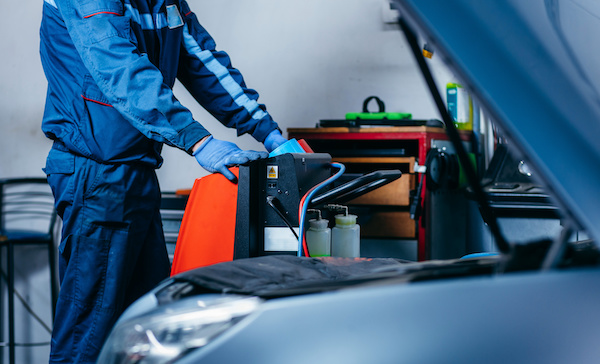
As the weather gets warmer, you may be blasting your car's air conditioning to stay cool. But what happens when the cool air stops flowing? It may be time for an R134A service. What Is R134A? R134A is the refrigerant that is commonly used in modern air conditioning systems. It is a hydrofluorocarbon that replaced the older, ozone-depleting refrigerant R12. R134A is a much more environmentally friendly option for automotive air conditioning systems. An R134A service is essentially a maintenance check-up for your car's air conditioning system. During an R134A service, a qualified mechanic will inspect the entire system, including the compressor, evaporator, and condenser. They will also check the refrigerant level, clean the system of any debris, and replace any worn-out or damaged parts. How Do You Know If Your Car Needs An R134A service? There are a few signs to look out for: Weak or warm air blowing from the vents: If your air conditioning is not as cold as it ... read more
Posted on 1/30/2023
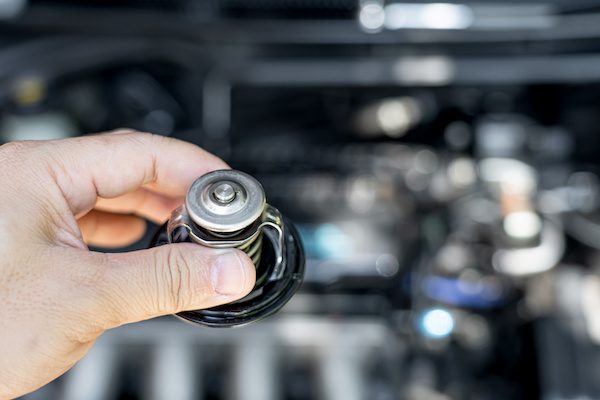
The thermostat plays a pivotal role in the cooling system process. As you may guess, the thermostat monitors engine temperature and ensures it is at an optimal temperature – not too hot and not too cold. When the engine temperature falls out of range, it closes and opens to facilitate coolant flow. If the thermostat is faulty or stays stuck in a closed or open position, it can lead to an array of problems: Engine Overheating - If your engine is running too hot, you should have the thermostat inspected. When the thermostat stays closed, it will prevent coolant from flowing through the motor. And coolant is necessary to cool down the engine temperature. You may notice other signs of overheating: smoke, high-temperature gauge, and coolant warning message. You will need to pull over as soon as you notice an overheating engine. Cold Air Blowing Instead of Heat - When the thermostat is stuck open, there is too much coolant going into the engine. As a result, the engine won&rsq ... read more
Posted on 12/30/2022

Winter weather can have a significant impact on your vehicle, as cooler temperatures can affect various systems and components. Here are some ways in which cooler winter temperatures can affect your vehicle: Battery: Cold weather can make it harder for your battery to hold a charge, which can lead to issues with starting your vehicle. If your battery is already weak or has a low charge, it may not be able to handle the added strain of the colder temperatures. Oil: Oil can thicken in colder temperatures, which can make it harder for it to flow through your engine and lubricate the various moving parts. This can lead to increased wear and tear on your engine, and it may also make it harder for your vehicle to start. Tires: Cold weather can affect the pressure in your tires, causing them to lose air more quickly. This can lead to issues with your handling and stability on the road. It's important to check your tire pressure regularly during the winter to ensure that they are properl ... read more
Posted on 11/16/2022
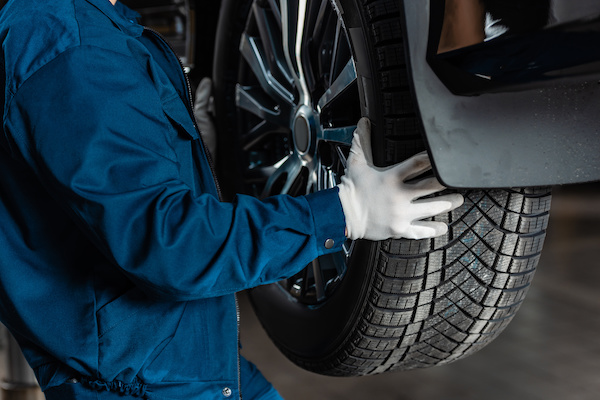
Tire rotations – you might think, “what’s the big deal anyway” or “are they trying to rip me off”. The answer to the latter question is: nope! Tire rotations are one of the simplest and most effective ways to keep your vehicle running in tip-top condition. Your vehicle’s tires impact daily driving, so let’s examine how tire rotations can benefit you. What Is a Tire Rotation? Tire rotations are a service where each tire on your vehicle is moved to a different position to extend and even out tire wear. They can go left to right and one corner to the other. Why Are Tire Rotations So Important? The importance of this service stems from the fact that your tires wear differently depending on the vehicle you have. For example, in most 4-wheel vehicles, the front of your vehicle endures more from steering, braking, and acceleration than the rear. As a result, your front tires naturally wear more quickly. The procedure helps ensur ... read more
Posted on 10/28/2022
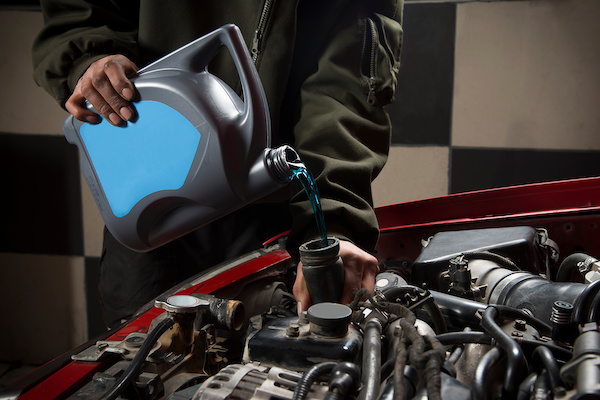
Your car operates on numerous fluids for different compartments, each serving an important purpose. However, there are certain fluids that are extremely vital to your car's functioning. These fluids need regular monitoring and changing. Brake fluid The hydraulics in your car's braking system depend on brake fluid to function properly. Maintaining proper brake fluid levels is crucial to prevent poor braking capability caused by low brake fluid. The rear of the engine compartment is often where the braking fluid reservoir is located. A half-inch or less should separate the brake liquid level from the cap. If you need to replace your brake fluid, refer to your owner's manual to find the right kind. Add liquid until it is just half an inch away from the cap. Additionally, you ought to examine the general caliber of your braking fluid. It could be time to have it replaced if the color is dark and impenetrable. Once every two years or every 30,000 kilometers. Power steering f ... read more